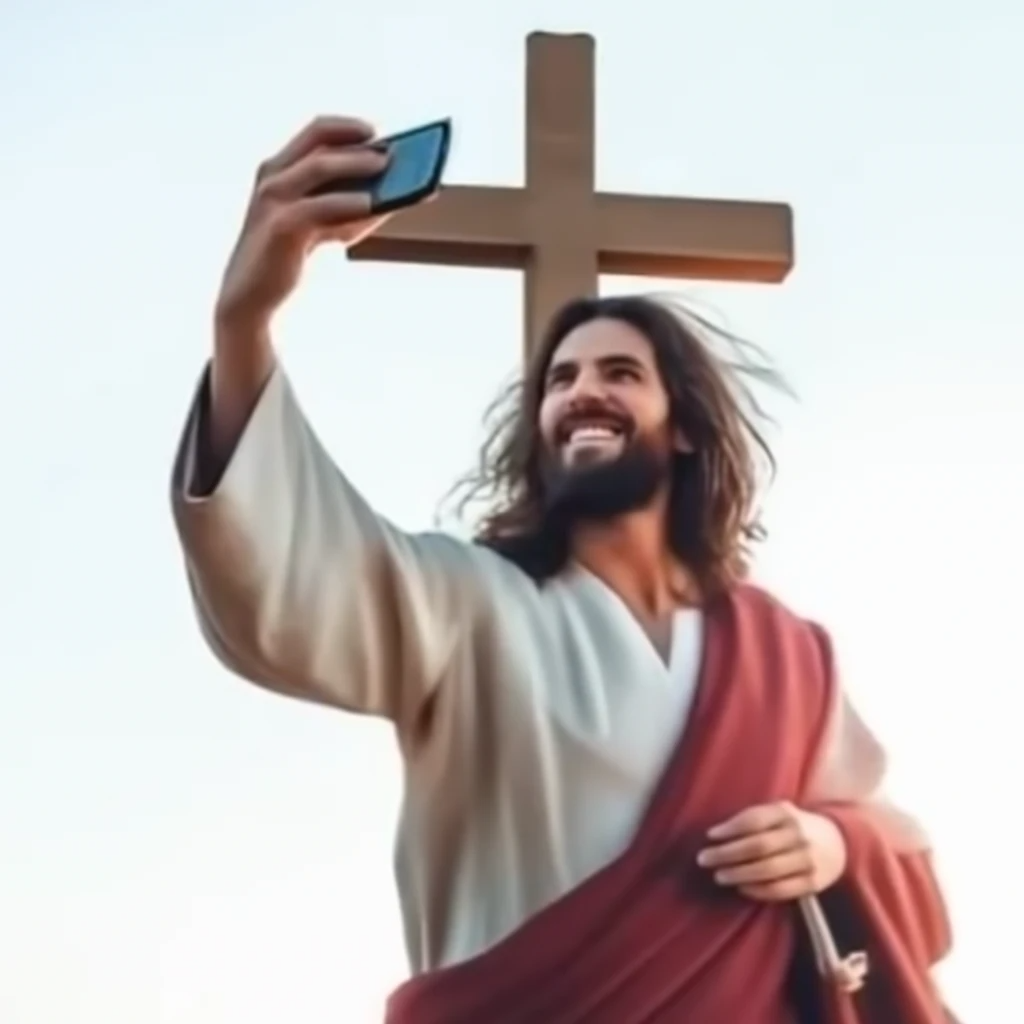
Let’s face it—Christian theology can sound like an ancient cosmic riddle wrapped in a divine enigma. The central narrative? God sacrifices Himself (in the form of Jesus) to Himself to save humanity from… Himself. Why? Because of a rule He made up: sin demands death. But instead of just changing the rule, He staged the ultimate divine drama.

Consider this: Imagine writing a parking law, issuing yourself a ticket, and then paying it to yourself—with great emotional fanfare. That’s basically the theology of the atonement in a nutshell.
The Examples of the Divine Loop:
The Garden of Eden: God creates Adam and Eve, places a forbidden fruit right in their reach, and then watches as they inevitably eat it. Result? Universal sin. Instead of saying, “Hey, my bad for setting up that trap,” He decides humanity now deserves death and suffering. But wait! He later sacrifices Himself to undo the mess He allowed in the first place.

Abraham and Isaac: God tells Abraham to sacrifice his son to prove his faith. At the last moment, He says, “Just kidding! Use this ram instead.” Fast forward, and God’s ultimate “ram” is Himself, sacrificed to satisfy the same kind of test He gave Abraham.
Ancient manuscripts, like the Book of Hebrews, get deep into this. Hebrews 9:22insists, “without the shedding of blood there is no forgiveness.” This sounds less like divine wisdom and more like the plot of an overly dramatic soap opera. Why blood? Why not interpretive dance? Or a heartfelt apology?
In the Old Testament, God institutes animal sacrifices: goats, bulls, doves. Fast forward to the New Testament, and suddenly it’s, “Surprise! None of that worked. What I really need is… Myself. As a human. Brutally executed. That’ll fix it.”
Think of it like cosmic troubleshooting:
- Step 1: Create humans.
- Step 2: Give them free will.
- Step 3: Get mad when they use it wrong.
- Step 4: Enforce a rule that requires blood to clean up the mess.
- Step 5: Sacrifice Yourself to Yourself to satisfy the rule.
It’s both beautifully poetic and absurdly bureaucratic. Like if the DMV also handled eternal salvation.

But perhaps that’s the point. Maybe the shock and strangeness are designed to make us pause, question, and engage. Because if God’s plan were neat and tidy, would it have kept humanity debating for 2,000 years?
Your move, theologians.
